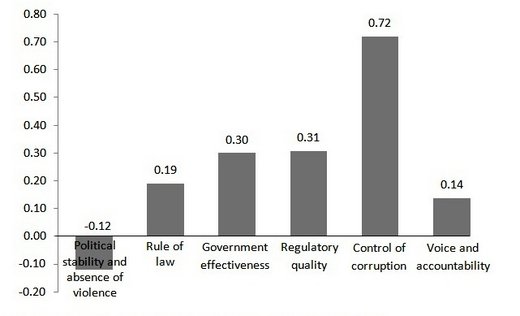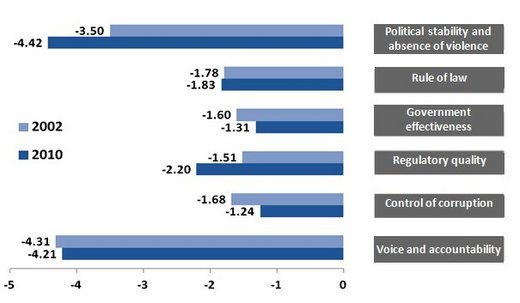TEPAV Articles
Ozan Acar - [Archive]
High-quality governance requires a new constitution 16/12/2011 - Viewed 3629 times
The spirit of the current 1982 Constitution is felt in many areas from what we learned in primary school to the terms and conditions of qualifying for retirement. The hierarchy of norms states that the laws, regulations and legislations citizens have to oblige throughout their social and economic relations shall not contradict with constitution. Rules might change, but constitutionality is an invariable condition. Therefore, it is the constitution that draws the line for the reforms regarding institutional infrastructure of Turkey.
Until today, the 1982 Constitution has been partially amended seventeen times. However, judging by the criticisms coming from almost all sections of the society confirms that these amendments failed to make the constitution an “ideal” document. You can hear demands for a new constitution anywhere you look. The presence of such a wide ground for consensus about abolishing the current constitution is of key importance. The opportunity window for a new constitution that will move closer to its target of becoming the tenth largest economy of the world by 2023 is half open.
Having studied economics, I would like to say at the beginning that I prefer hearing the views of people practicing law or political science on the content of the new constitution rather than stating a view in this regard. The only contribution I could make in this context is to draw attention to the relation between the quality of governance and constitution, and set forth the magnitude of the governance problems of Turkey. Here, governance refers to institutional infrastructure in relation with economic growth and development. Kaufmann, Kraay and Mastruzzi (2003)[1] in this context group the factors that determine the quality of governance under three categories. First is the process by which governments are elected, monitored and replaced. Second is the capacity of the government to effectively formulate and implement sound policies. Third category is related to the respect of citizens and the state for the institutions that govern economic and social interactions among them.
The Worldwide Governance Indicators (WGI) published annually by the World Bank enables the measurement of governance quality in individual countries. The WGI is composed of six indicators under the three main headings above: Voice and accountability index reflects a combination of many elements including free media, democracy and military-civilian relations. Political stability and absence of violence index covers indicators like armed conflict, terrorism and murders by unknown assailants. Government effectiveness index aims to measure the price and the quality of public inputs. Regulatory quality reflects upon the state of countries concerning competition environment, pricing process for public inputs or foreign capital liberation. Rule of law covers indicators including confidence in the police and protection of intellectual property rights. Control of corruption captures indicators such as transparency, public trust in politicians and the level of corruption. The indicators covered by main indices can be assessed here.
Let me take a look at the changes in the governance quality in Turkey between 2002 and 2010. The most striking detail in figure 1 is the improvement in Turkey’s position for all indicators except the political stability and absence of violence index during the examined period. The strong performance is visible particularly concerning anti-corruption. The improvement in the government effectiveness and regulatory quality with the help of the laws enacted and new institutions established in line with the harmonization with the European Union acquis is remarkable. On the other hand, limited progress was made with respect to the rule of law and freedom of expression.
Figure 1: Turkey’s position in governance indices (change between 2002 and 2010)

Source: Worldwide Governance Indicators, TEPAV Calculations
How did Turkey’s performance changed in comparison with selected countries with this overall improvement in governance quality between 2002 and 2010? Which indicator groups are more problematic? It is important to answer these questions in order to make a solid assessment of Turkey’s governance performance and the current state. Figure 2 shows the standardized difference between Turkey’s governance index score and the European Union 27 (EU-27) average[2]. The first point to emphasize here is that Turkey lags behind the EU-27 with respect to all governance indicators. Following are some striking observations:
- Turkey performed worse than each of the EU-27 countries in political stability and absence of violence. 2010 index value for Turkey is 4.42 standard deviation points less than the EU-27 average. In addition, Turkey’s position deteriorated in 2010 in comparison with 2002.
- As denoted above, Turkey’s performance with respect to the rule of law and regulatory quality enhanced between 2002 and 2010. When compared to the EU-27 countries, however, Turkey’s performance deteriorated. The downturn in regulatory quality in particular was striking. This resulted directly from the fact that performance of the EU-27 countries in this field improved more rapidly than that of Turkey.
- Indicators with regard to the government effectives and control of corruption indices demonstrated a limited improvement from 2002 to 2010. Nonetheless, Turkey is still significantly below the EU-27 average. Still, Turkey is in a relatively more advantageous position in terms of this category.
- Voice and accountability is the second most problematic area after political stability and absence of violence. Despite the limited improvement observed during the 2002-2010 period, Turkey lags behind all of the EU-27, with a standard deviation of 4.21 points.
Figure 2: Standard difference between Turkey and EU-27 countries (2002 and 2010)

Source: Worldwide Governance Indicators, TEPAV Calculations
The analysis does not involve an assessment for this year since the Worldwide Governance Indicators 2011 are not yet published. However, judging by the developments Turkey went through during the last twelve months, we can argue that Turkey’s position in the rankings will deteriorate. Taking into account the decisions that threaten the independence of supreme councils, widespread usage of decrees, hiking terrorist incidences, lengthy detention periods and the increase in the number of journalist in prisons, we might expect a decrease in the quality of governance in Turkey.
Above assessments reveal that Turkey has governance problems particularly in terms of “political stability and absence of violence” and “voice and accountability.” Relative enhancements were observed in terms of rule of law, regulatory quality and government effectiveness. Progress was made as much as the current constitution and the political conjuncture allowed. Nevertheless, we must keep in mind that Turkey still lags way behind EU-27 countries. The first and the most critical step Turkey has to take in order to advance its institutional infrastructure and governance quality in line with the 2023 targets. The making (governance) of the new constitution is as important as it is content. Keen efforts must be made in order to ensure the widest social consensus possible. Otherwise, it is impossible to formulate a text which will improve governance quality and build its growth performance on a more solid basis.
Ozan Acar, TEPAV Economic Policy Analyst, http://www.tepav.org.tr/en/ekibimiz/s/1212/Ozan+Acar
[1] Kaufmann, Daniel; Kraay, Aart and Mastruzzi, Mastruzzi. “The Worldwide Governance Indicators.” Policy Research Working Paper No. 5430, The World Bank, 2003.
[2] The standardized difference between the indicators for Turkey and for EU-27 is calculated by Turkey’s index value subtracted from EU-27 average and divided by EU-27 standard deviation.














